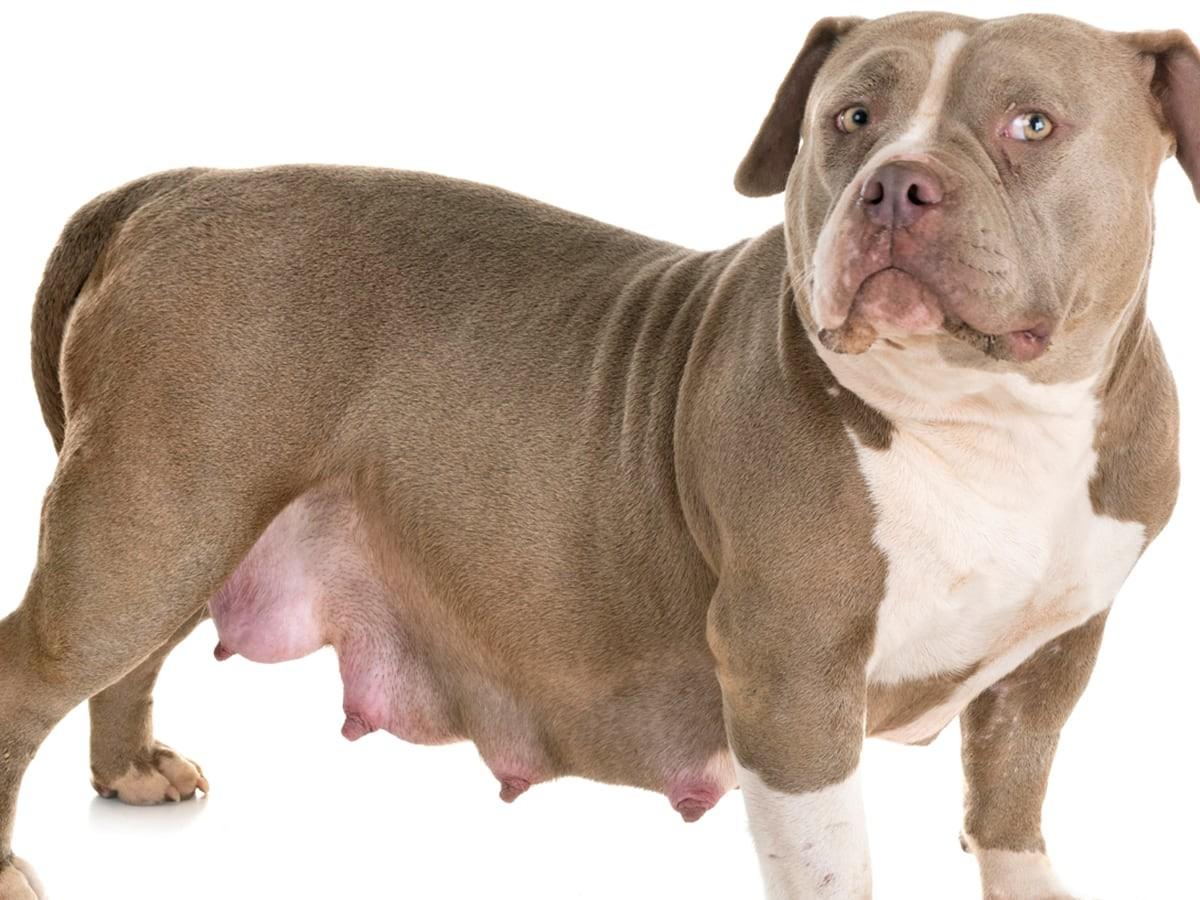A girl can get pregnant as soon as she begins ovulating, which can happen as early as age 8, but usually occurs between the ages of 12 and 13. If we take the same age in dogs and calculate using dog years (7 human years = one dog year), we could say that a female dog can get pregnant starting from age 2. However, it is not the right way to look at it.
Most people would have gone ahead using the above calculation, but it is a good thing that you’re a responsible pet parent trying to find the correct answers. Knowing and planning dog pregnancies is crucial for pet parents. Unlike humans, where we need ‘the talk’ before we plan babies, dogs do not get such luxuries. Nature just throws them into the hormonal deep end and says, "Good luck!"
Apart from handling the young pups, which can be a huge responsibility in itself, pregnancies can majorly affect the health of a female dog. It is also important to understand the reproductive cycles of dogs as the sexual maturity age can vary from breed to breed. And with every new stage, they’ll have new hormones developing and changing their behaviors.
The first step to understanding pregnancies in dogs is to understand their heat cycles -
What is the Heat Cycle in Dogs?
A heat cycle is like a season in which dogs can get pregnant. It is when they will be more active sexually and even more attracted to male dogs. Typically, dogs have their first heat cycle when they are 6 months old. However, for some dogs, usually the larger ones, it can come when they are about 2.5 years old. A heat cycle usually lasts for 16-18 days and comes every 6-7 months, which is approximately twice a year. The gaps between the heat cycles keep getting bigger with age.
A heat cycle comes in 4 stages – (2)
Proestrus – This is when you’ll see the female dog being playful with the male dogs, but not quite open to mating. It is indicated by bloody vaginal discharge and swelling of the vulva caused by the estrogen produced by the ovaries.
Estrus – This occurs 1-2 days after the first stage, and this is when the female is receptive to breeding. The vaginal discharge may change to straw-colored here but may vary from dog to dog. This stage typically lasts for 5-9 days.
Dietrus – This stage is when the female dog is no longer interested in mating with the males. It happens when the progesterone in their body peaks and then plateaus before gradually decreasing over 10-30 days. You’ll know that the female has reached this stage when she doesn’t wait anymore to get humped from behind.
Anestrus – This stage occurs either at the end of the heat cycle or after having a litter. It is basically the post-partum stage where the uterus undergoes a process called involution. It is a repairing stage for the cycle to keep functioning and repeating regularly. It takes around 4 months to complete.
Signs of Fertility in Dogs
The estrus stage is the fertile phase of the cycle, which typically occurs 7-10 days after the start of the heat cycle and lasts around 5-9 days. During this phase, you’ll see some signs in the dog that indicate the readiness of the dog for mating. They include - (1)
Red swollen vulva
Yellow or brown colored discharge from the body
Licking their behind more often
Increased frequency of peeing
Behavioral changes like being more friendly around male dogs, finding male dogs, mounting and humping random objects, moving the tail aside when touched, etc.
The middle days of the estrus phase, around days 9-13 of the cycle, are usually the most fertile in dogs. So, the chances of the dog getting pregnant are very high during that time. However, the female can get pregnant a little before or after the ovulation phase as the male sperm typically lives in the female’s system for several days.
What is the best age for breeding for a dog?
Even though some dogs can get pregnant starting from 6 months of age, it is generally not considered healthy to breed a dog before age 1. For some dogs, usually the larger ones, the safe minimum age can also be 2 years. (1)
For the upper end of the spectrum, it is usually not considered safe to breed them after a certain age. For most dogs, the age is 7, but it can vary depending on the maturity age. Smaller breeds may reach reproductive maturity sooner and may cycle more frequently, while larger breeds may take longer to mature.
Note that, unlike humans who experience menopause after a certain age, dogs don’t. They can get pregnant at any age once their heat cycles start. However, the cycles usually start becoming less frequent as the dog grows older.
How to prevent unwanted pregnancy in dogs?
Spaying: The most common option is to spay the female dog. Not only does it prevent unwanted pregnancies but also comes with certain health benefits. However, it is recommended to consult a vet to know the best time to spay your dog.
Monitoring: If you don’t want to go for spaying, you will have to closely monitor the heat cycles to ensure no mating during the phase. It is best to keep the dog indoors during the heat cycles to avoid accidental mating.
Other considerations
If you see a white discharge coming out from the dog’s vulva during a heat cycle, there is a chance that the dog is infected and needs to be taken to a vet immediately. You should also consult a vet if the vulva is swollen more than usual and is causing pain or discomfort to the dog. They won’t be able to tell you that they are in pain, but they will indicate the same with their behavior. It may include behaviors like excessive barking, lack of appetite, lack of interest, etc.
As a pet owner, you should have your observational eyes always open to see if your dog is showing any kind of signs to indicate pain or discomfort. It could be a temporary injury or something so severe that it needs immediate vet attention.
To assist you in your efforts to take care of your dog, here’s our bit –
Dog Insurance can help provide financial assistance for eligible veterinary care in case of unexpected accidents, illnesses, or injuries. Our plans can help pet parents manage the eligible costs of covered veterinary care and help ensure that their pets can receive the best treatment possible. Here are some ways that Spot pet insurance plans can help:
Covers Unexpected Veterinary Costs: Spot pet insurance plans cover the eligible costs of unexpected veterinary treatments, such as emergency surgeries, X-rays, and prescription medications for covered conditions.
Customizable Plans: Choose your annual limit, reimbursement rate, and deductible from a range of options, and create the plan that will fit the needs of your pet and your budget.
Peace of Mind: With Spot pet insurance plans, pet parents can know that they can provide the best care for their pet with less worry about the cost.
To learn more about Spot Plans or to get a free quote, click here.

Creative manager by day, pet enthusiast all the time! After 19 years with my dog (hopefully he wins the award for oldest pet in the world), I enjoy spending my days brainstorming tail-wagging content, and sniffing out the latest trends in the pet world.
Seasons in dogs. (n.d.). https://www.pdsa.org.uk/pet-help-and-advice/pet-health-hub/conditions/seasons-in-dogs
Dog estrous cycles. (n.d.). Cornell University College of Veterinary Medicine. https://www.vet.cornell.edu/departments-centers-and-institutes/riney-canine-health-center/canine-health-information/dog-estrous-cycles












